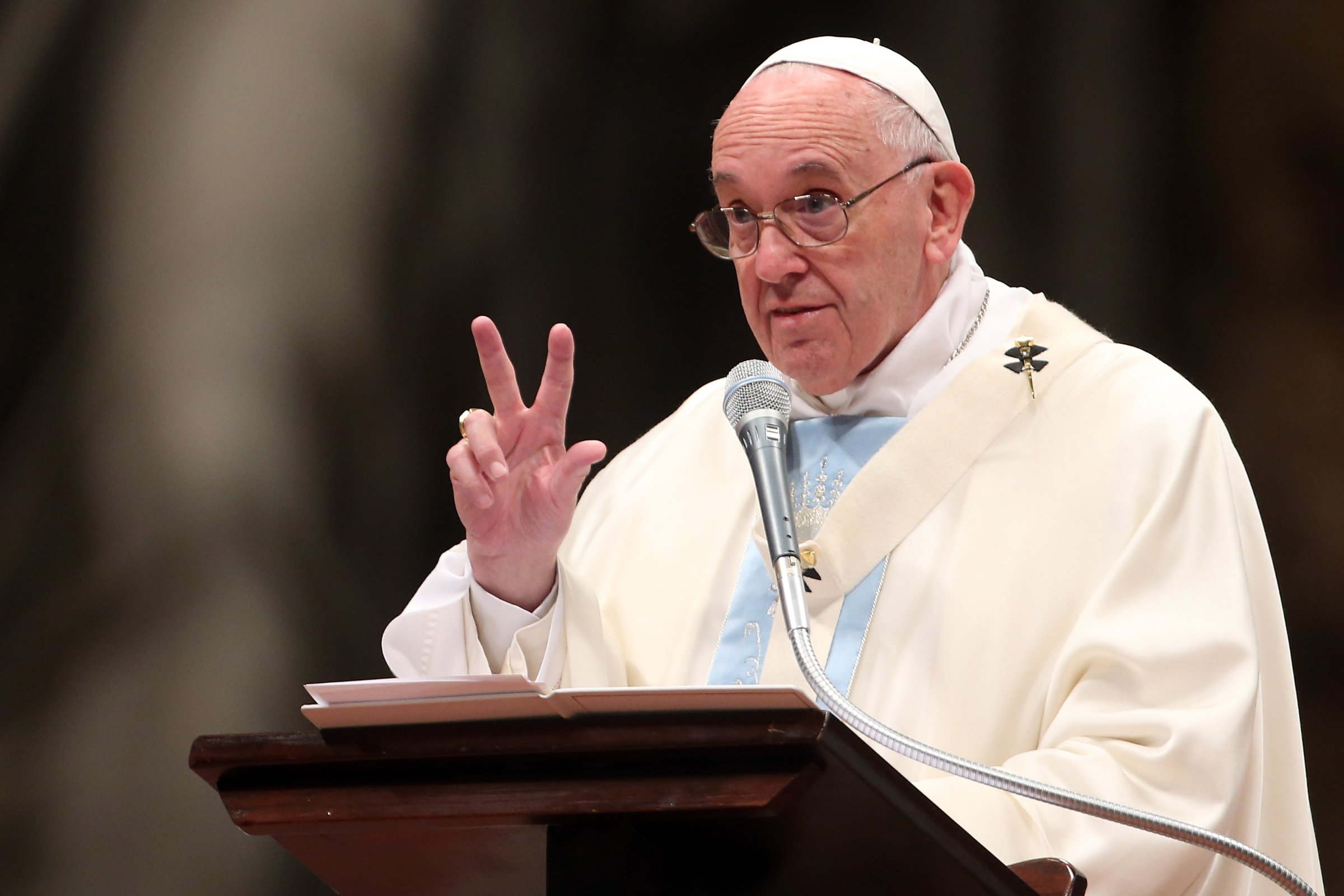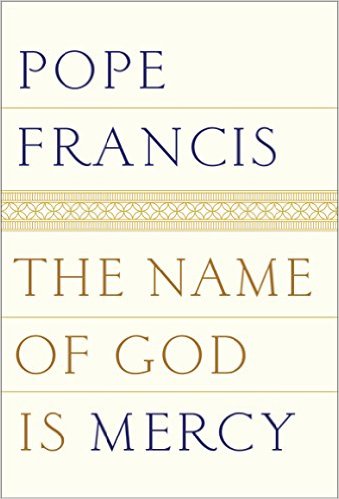
A new book by Pope Francis comes out today under the title The Name of God is Mercy. The release coincides with the Jubilee Year of Mercy, which started in December. Italian journalist Andrea Tornielli, who interviewed Pope Francis for the book, says in his foreword that it is meant to “reveal the heart of Francis and his vision.” Fr. Thomas Rosica, the English language assistant to the Holy See Press Office, told me via email that the book achieves that goal with its title alone.
The Name of God is Mercy is not only the title of book by Pope Francis, it is also key to understanding his Petrine Ministry, his vision of what kind of Church we must be, and an antidote to the tragic situation of the world and of humanity at this moment in history. Mercy is a cornerstone spiritual value for Francis, and God’s ‘identity card’ that needs to be expressed in acts of compassion, especially for the poor and those on the margins of life.
Here are the top two lessons from the book.
1. God’s first love is the excluded.
Pope Francis clarifies his 2013 quote “who am I to judge” gay men and women, saying that the person supersedes his or her sexual orientation.
If a person is gay and seeks out the Lord and is willing, who am I to judge that person. I was paraphrasing by heart the Catechism of the Catholic Church where it says that these people should be treated with delicacy and not be marginalized.
He says the Church should protect those in need and be a “field hospital,” where treatment is given above all to those who are most wounded. He particularly focuses on the need to encounter the sufferings of migrants and prisoners.
“Reach out, know how to listen, advise them, and teach them through our own experience,” he says. “By welcoming a marginalized person whose body is wounded and by welcoming the sinner whose soul is wounded, we put our credibility as Christians on the line.”
Francis argues that too many Christians approach service to the excluded with a spirit of superiority. Instead, he says, Christians shouldn’t view themselves as better than anyone they encounter: “Every time I go through the gates into a prison to celebrate Mass or for a visit, I always think: Why them and not me? I should be here. I deserve to be here. Their fall could have been mine. I do not feel superior to the people who stand before me. And so I repeat and pray.”
Francis is arguing for a new pastoral paradigm for the Catholic Church. The Church’s traditional theology is rooted in abstract claims about God and his relationship with the human community. Francis thinks we need a new framework for a different era. His theology doesn’t start in the sky, but with the lived experiences of the excluded and what he calls his first dogmatic certainty that God is in every person’s life. This theology that begins from below will be much more effective in a generation that has largely lost its capacity to even see the sky, to wonder at creation, and to think deeply about issues of faith.

2. God’s first attribute is mercy.
Elaborating on what will clearly become the hallmark theme of his papacy, Pope Francis says that God’s primary characteristic is mercy, and that the faith community’s first job to dispense this mercy: “The Church does not exist to condemn people, but to bring about an encounter with the visceral love of God’s mercy.”
Francis admits that the Church has often failed in this effort. He argues that there are two logics in how the Church should operate: “On the one hand, there is the fear of losing the just and saved, the sheep that are already safely inside the pen. On the other hand, there is the desire to save the sinners, the lost, those on the other side of the fence.”
“The first is the logic of the scholars of the law,” Francis says. “The second is the logic of God, who welcomes, embraces, and transfigures evil into good, transforming and redeeming my sin, transmuting condemnation into salvation.”
How should the Church do this today? “We need to enter the darkness, the night in which so many of our brothers live. We need to be able to make contact with them and let them feel our closeness, without letting ourselves be wrapped up in that darkness and influenced by it.”
Asked whether there is an opposition between mercy and doctrinal truth, Francis responded: “I will say this: mercy is real; it is the first attribute of God.”
As he has done throughout his papacy, Pope Francis shows in this book a compelling way to present God’s love anew to a skeptical world without denying the ancient teachings of faith. But now he is challenging the entire Church to trek a new way forward. Francis wants us to focus our energy on the 99% who need to experience once more the greatest realities of our faith: We are children of God. The Lord loves and forgives us. Christ walks with us. The church cherishes us and welcomes us.
More Must-Reads from TIME
- Cybersecurity Experts Are Sounding the Alarm on DOGE
- Meet the 2025 Women of the Year
- The Harsh Truth About Disability Inclusion
- Why Do More Young Adults Have Cancer?
- Colman Domingo Leads With Radical Love
- How to Get Better at Doing Things Alone
- Michelle Zauner Stares Down the Darkness
Contact us at letters@time.com